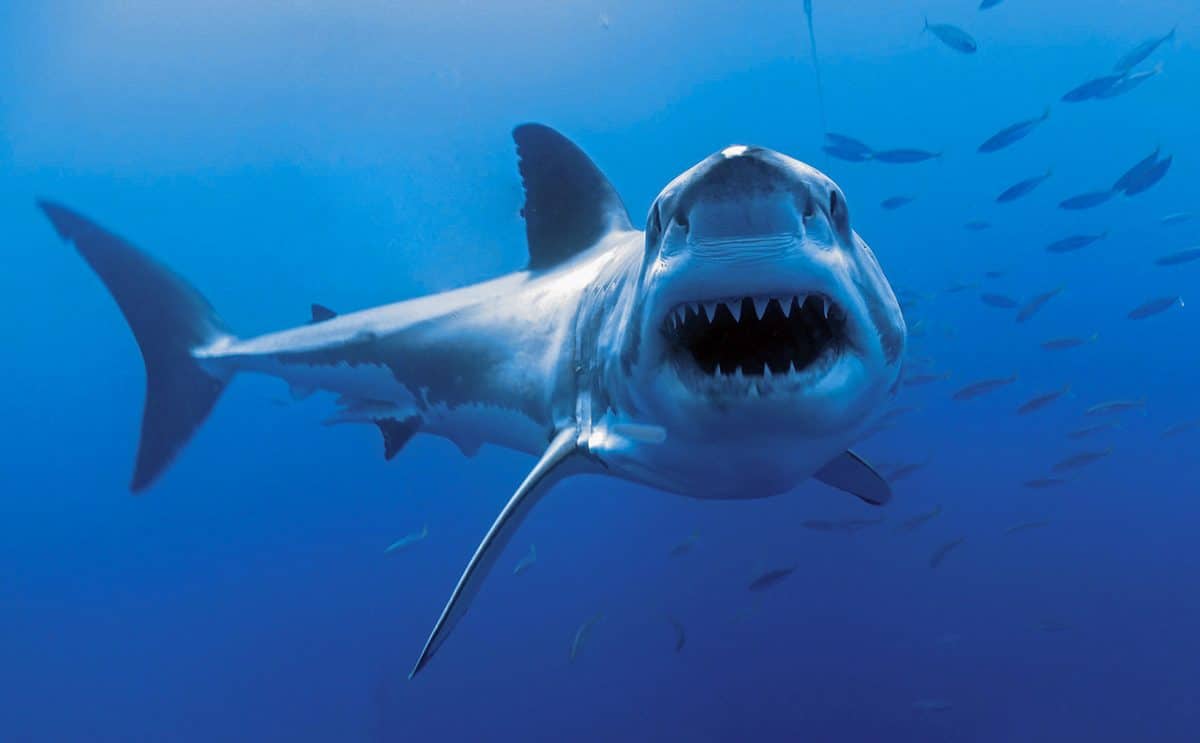In an extraordinary first, researchers have observed an individual orca (killer whale) consuming a great white shark within a remarkably brief span of two minutes, marking a groundbreaking moment in marine predation. Dr. Alison Towner from Rhodes University led an international research team that documented this unprecedented behavior off the coast of Mossel Bay, South Africa.

The findings, published in the peer-reviewed African Journal of Marine Science, shed new light on the remarkable hunting abilities of killer whales. This discovery builds upon previous research by Dr. Towner’s team, which revealed in 2022 that a pair of orcas had been actively hunting and killing great white sharks in the same region since 2017. These orcas demonstrated a remarkable preference for extracting and consuming the lipid-rich livers of white sharks, a specialized feeding behavior.
However, the recent observation of an individual orca, nicknamed Starboard due to its collapsed dorsal fin, hunting and consuming a juvenile white shark solo represents a significant departure from conventional cooperative hunting behaviors observed in orcas.
Starboard’s swift incapacitation and consumption of the shark underscore the exceptional proficiency of killer whales as apex predators. The entire predation event unfolded within an astounding two-minute timeframe, highlighting the orca’s remarkable hunting efficiency.
During the observation, at least two white sharks were killed, as evidenced by the discovery of a second carcass nearby. This raises important questions about the impact of killer whale predation on shark populations in South Africa and the broader marine ecosystem.
Dr. Towner emphasizes the urgent need for adaptable conservation strategies and vigilant ecological monitoring in response to changing environmental conditions. Understanding the ecological dynamics of killer whale predation is crucial for marine conservation efforts and ecosystem management.
Dr. Simon Elwen, an expert in whale ecology and conservation, underscores the significance of the findings, noting that killer whales’ ability to rapidly learn new hunting techniques highlights the need for ongoing research and monitoring.
The involvement of land-based observers, tourists, and collaborating institutions played a pivotal role in capturing crucial data and footage of the predation events. Esther Jacobs from the marine conservation initiative, Keep Fin Alive, recounts the somber yet powerful experience of witnessing the predation firsthand.
Dr. Primo Micarelli, co-author from the Shark Studies Centre and Siena University, expresses concern about the profound impact of killer whales on the local white shark population and coastal marine ecology balance..
Leave a Reply